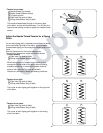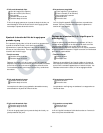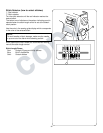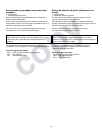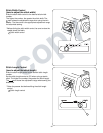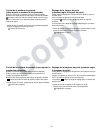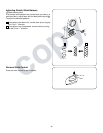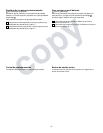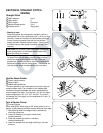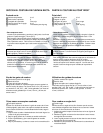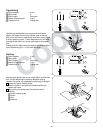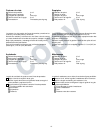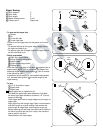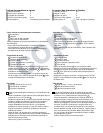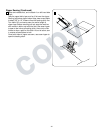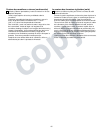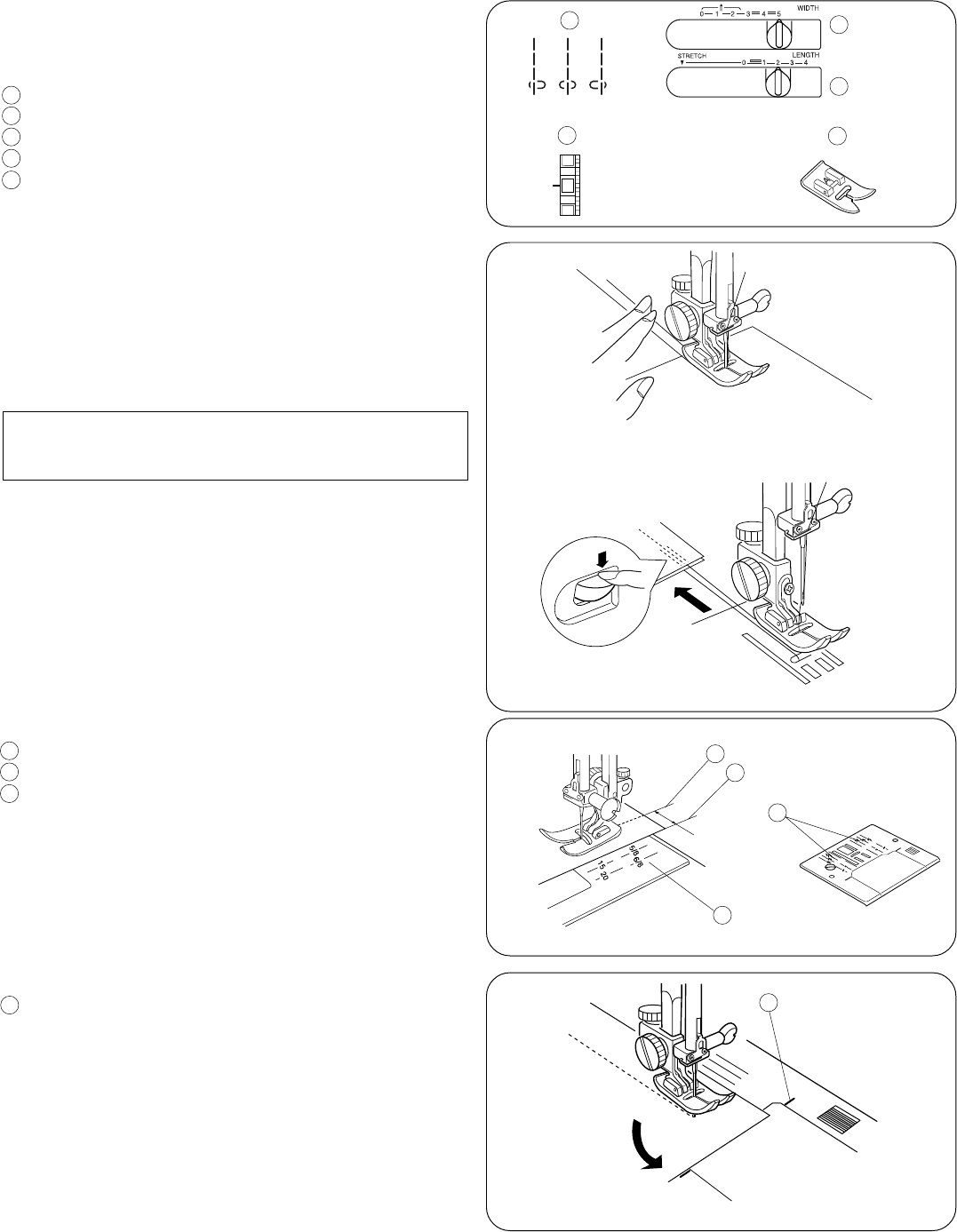
38
ypoc
1
5
3
4
1
5
4
2
3
3
1
3
2
SECTION III. STRAIGHT STITCH
SEWING
• Starting to sew
Raise the presser foot and position the fabric next to a
seam guide line on the needle plate (5/8˝ (1.6 cm) is most
common). Lower the needle to the point where you want
to start. Lower the presser foot and pull the threads
toward the back. Depress the foot control. Gently guide
the fabric along a seam guide line letting the fabric feed
naturally.
Straight Stitch
Stitch selector: 4 to 6
Stitch width: 5
Stitch length: Red zone
Needle thread tension: 2 to 6
Presser foot A: Zigzag foot
1
5
4
3
2
Use the Seam Guides
Center needle position
Edge of fabric
Needle plate guidelines
The seam guides on the needle plate are there to help you
measure seam width. The numbers on the needle plate
indicate the distance between the center needle position
and the edge of the fabric. The lines are 1/8˝ (0.3 cm) apart,
and are engraved at 3/8˝, 4/8˝, 5/8˝, and 6/8˝. The lines in
millimeters are 5 mm apart, and are engraved at 10 mm, 15
mm and 20 mm.
1
3
2
1
Turn a Square Corner
Cornering guide
When sewing with fabric edge at 5/8˝ seam guide, to turn a
square so that sewing continues at same distance from edge.
1. Stop stitching when front edge of fabric reaches the
cornering guide lines.
2. Lower the needle by turning the hand wheel
counterclockwise.
3. Raise the presser foot and turn the fabric
counterclockwise 90°.
4. Lower the presser foot, and begin stitching in the new
direction.
CAUTION: Do not place fingers near to the presser foot
when guiding fabric, or the needle clamp screw may
strike and injure your fingers.
• Finishing sewing
To fasten the ends of a seam, press the reverse stitch
control and sew several reverse stitches. Raise the
presser foot. Remove the fabric, draw the threads to the
back and cut them with the thread cutter. The threads are
now the proper length to begin sewing the next seam.



